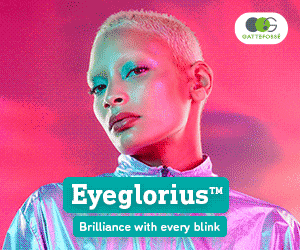Beiersdorf and Unilever have gone head to head once again, this time concerning a claim Unilever made in one of its deodorant advertisements.
The advert in question promotes Unilever's Sure Crystal Invisible Black+White deodorant. In the advert, a bar chart is featured (pictured) comparing the Sure deodorant with Beiersdorf’s Nivea Invisible Black and White deodorant. The chart showed Sure as registering a higher reading for protection against yellow stains compared with Nivea. At another point in the ad, there was also a voiceover stating: "Our superior black and white protection".
The advert hit a nerve with Beiersdorf, which lodged a formal complaint with the Advertising Standards Authority (ASA) challenging whether the claim could be substantiated.
Unilever responded saying that it had carried out independent tests (both in vitro and consumer perception) that revealed Sure deodorant did provide better protection against yellow stains compared with Nivea’s Invisible Black and White deodorant, which Unilever believes to be the leading competing product. With regard to the "our superior black and white protection" claim, Unilever believed it was clear that the claim referred to the advertised product as the best for black and white protection within the Sure range, not in comparison with Nivea's product.
After considering both sides of the story, the ASA ruled in Beiersdorf’s favour and upheld the complaint. It stated that the advert did not make clear that the ‘superiority’ claim referred only to protection against yellow stains but that the ad had implied the product was a superior product for black and white protection. The ASA looked into Unilever’s independent testing as well and found that, while the results did appear to be in favour of Unilever’s product, the conditions set in the in vitro test did not mimic the scenarios featured in the ad. Moreover the testing was carried out on 100% cotton materials, which was unlikely to match consumers’ expectations from the claim in context.
Overall, the ad breached BCAP Code rules including misleading advertising, substantiation and comparisons with identifiable competitors. Unilever was told the ad must not appear again in its current form.



